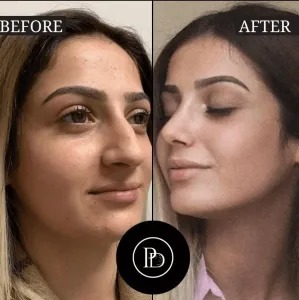In today’s environmentally conscious world, reducing waste has become a priority for consumers and brands alike. One of the key areas where sustainability can be improved is in the packaging industry, particularly with cosmetic products. Custom cosmetic boxes are an excellent way to not only elevate your brand’s appeal but also contribute to eco-friendly practices. By adopting innovative strategies and designing thoughtfully, businesses can significantly reduce waste and promote sustainability through custom boxes.
1. Emphasize Eco-Friendly Materials in Custom Cosmetic Boxes
Choosing the right materials is the first step toward reducing waste with custom cosmetic boxes. Opting for eco-friendly options such as recyclable cardboard, biodegradable paperboard, or recycled Kraft paper helps minimize environmental impact. These materials are not only sustainable but also versatile in design, allowing brands to create attractive packaging that aligns with their eco-conscious values. When consumers see that your custom boxes are made from sustainable materials, it encourages responsible consumption and reduces the volume of non-biodegradable waste.
2. Design for Reusability and Multi-Functionality
One effective way to cut down on waste is by designing custom cosmetic boxes that consumers can reuse. Multi-purpose boxes can serve various functions, such as storage for jewelry, accessories, or other small items, extending their lifespan beyond a single use. When creating custom boxes, consider features like sturdy construction, elegant aesthetics, and practical closure mechanisms that make them appealing for multiple uses. This approach not only reduces the need for new packaging but also fosters brand loyalty as customers appreciate products that add value beyond their initial purpose.
3. Minimize Material Usage Without Compromising Quality
Reducing waste also involves optimizing the amount of material used in each custom cosmetic box. By designing minimalistic yet durable packaging, brands can lower their material consumption and waste generation. Techniques such as die-cutting, folding, and smart layout planning help to eliminate excess material and reduce the overall size of the boxes. Lightweight custom boxes also require less energy during transportation, further decreasing carbon emissions. Achieving this balance ensures your packaging remains protective and attractive while being environmentally responsible.
4. Incorporate Sustainable Printing Techniques
Printing plays a significant role in custom cosmetic boxes, and choosing eco-friendly printing methods can make a substantial difference. Soy-based or vegetable-based inks, water-based coatings, and digital printing technologies are more sustainable options compared to traditional solvent-based inks. These techniques reduce volatile organic compounds (VOCs) and waste during production. Moreover, using minimal ink coverage and simple designs can further decrease waste, making your custom boxes both visually appealing and environmentally friendly.
5. Use Recyclable and Compostable Inks and Adhesives
In addition to the printing process, the adhesives and inks used in custom boxes should be recyclable or compostable. Non-toxic, biodegradable adhesives ensure that the entire packaging can be effectively recycled or composted without releasing harmful substances into the environment. This holistic approach to eco-friendly packaging emphasizes the importance of considering every component of the custom cosmetic boxes, ultimately reducing waste and supporting sustainable disposal methods.
6. Offer Custom Boxes Designed for Easy Recycling
Designing custom cosmetic boxes with recyclability in mind can significantly reduce waste. This involves creating boxes that are easy to disassemble, with minimal use of mixed materials that complicate recycling processes. Clear labeling and instructions on how to recycle the packaging can also guide consumers in responsible disposal. By making the recycling process straightforward, brands can encourage consumers to participate actively in waste reduction efforts.
7. Implement Sustainable Manufacturing Practices
Reducing waste isn’t solely about the final product; it also involves sustainable manufacturing practices. Choosing suppliers and manufacturers committed to eco-friendly production processes, such as waste recycling, energy efficiency, and waste minimization, can greatly impact your overall environmental footprint. When producing custom cosmetic boxes, ensuring that the manufacturing process adheres to high environmental standards supports your brand’s sustainability goals and contributes to waste reduction.
8. Opt for Minimal Packaging to Reduce Material Waste
Minimalism in packaging design is a powerful strategy to reduce waste. By eliminating unnecessary layers, inserts, or excessive decoration, brands can create sleek, efficient custom boxes that use less material. This not only minimizes waste but also reduces shipping costs and carbon emissions during transportation. Focused design elements that serve both aesthetic and protective functions can help achieve a balance between attractive presentation and environmental responsibility.
9. Encourage Consumers to Reuse and Recycle Custom Boxes
Engaging consumers in waste reduction efforts is crucial. Including messaging about reusing or recycling custom cosmetic boxes can motivate customers to participate actively. Offering incentives such as discounts for returning or recycling packaging fosters a circular economy approach. Additionally, designing eye-catching, durable custom boxes that consumers want to keep can promote longer use, reducing the need for new packaging and lowering overall waste.
10. Educate and Promote Sustainability Through Branding
Finally, integrating sustainability into your brand identity can influence consumer behavior. Use your packaging as a platform to communicate your commitment to reducing waste by highlighting the eco-friendly features of your custom cosmetic boxes. Transparent messaging about your sustainable practices encourages consumers to make responsible choices and supports your brand’s reputation as an environmentally conscious company. Education and promotion are powerful tools to foster a community dedicated to waste reduction and sustainability.



